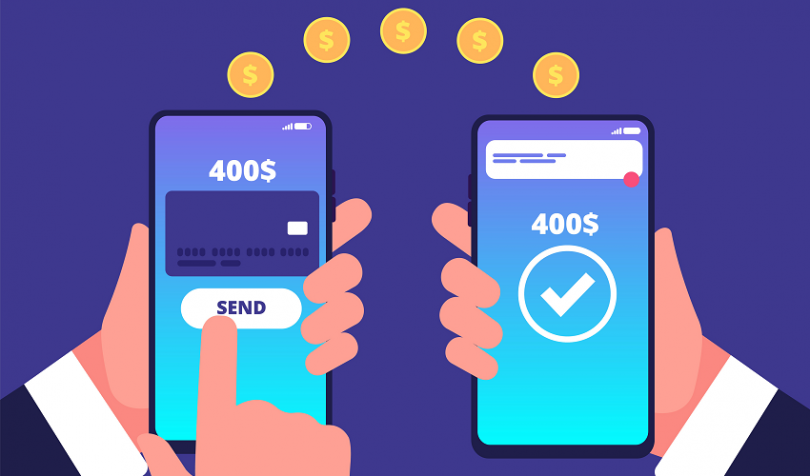Table of Contents
Cryptocurrencies have catapulted into the financial limelight in recent years, sparking a global frenzy of interest and investment. While these digital assets offer a myriad of possibilities, one of the most compelling use cases is Cryptocurrency Payments. In this comprehensive guide, we’ll delve into the world of using cryptocurrency for everyday transactions.
Understanding Cryptocurrency Payments
Cryptocurrency payments are the utilization of digital currencies to conduct financial transactions. These transactions encompass a wide array of activities, from purchasing goods and services to transferring funds across borders. The appeal lies in the unique characteristics of cryptocurrencies, which include decentralization, security, and a degree of anonymity.
The Cryptocurrency Landscape
To embark on the journey of using cryptocurrencies for payments, it’s essential to grasp the diverse landscape. Bitcoin, often considered the pioneer, is just one of thousands of digital currencies available. Each cryptocurrency operates on its blockchain, a decentralized ledger that records all transactions.
In addition to Bitcoin, cryptocurrencies like Ethereum, Ripple, and Litecoin have gained substantial popularity. Understanding the different attributes and use cases of each can be pivotal in selecting the right currency for your payment needs.
Setting Up a Cryptocurrency Wallet
Central to using cryptocurrencies for payments is a cryptocurrency wallet. These digital wallets store your cryptocurrency holdings and facilitate transactions. There are two primary categories of wallets: software wallets, which are accessible online or via mobile apps, and hardware wallets, which are physical devices offering enhanced security.
Once you’ve selected a wallet, you’ll need to set it up, creating a unique address for receiving payments. This address functions much like a bank account number, allowing others to send cryptocurrency to you.
Acquiring Cryptocurrency
To make cryptocurrency payments, you must first acquire digital assets. Several avenues exist for obtaining cryptocurrencies:
- Cryptocurrency Exchanges: These online platforms allow you to buy, sell, and trade various cryptocurrencies. You can fund your exchange account with traditional fiat currencies and convert them into digital assets.
- Mining: For the more adventurous, cryptocurrency mining involves solving complex mathematical puzzles to validate transactions on a blockchain. Miners are rewarded with newly created cryptocurrencies.
- Peer-to-Peer (P2P) Transactions: You can also obtain cryptocurrencies through direct transactions with individuals who own them.
Making a Cryptocurrency Payment
The process of making a cryptocurrency payment is remarkably straightforward. It typically involves these key steps:
- Select the Recipient: You’ll need the recipient’s cryptocurrency address, much like an email address for digital communication.
- Specify the Amount: Determine the amount of cryptocurrency you wish to transfer.
- Initiate the Transaction: Using your cryptocurrency wallet, input the recipient’s address and the amount, then confirm the transaction.
- Wait for Confirmation: Cryptocurrency transactions require confirmation on the blockchain, which may take a few minutes to several hours, depending on the network’s congestion.
Advantages of Cryptocurrency Payments
Using cryptocurrencies for payments offers several distinct advantages:
- Speed: Cryptocurrency transactions are often faster than traditional banking systems, especially for international transfers.
- Security: The robust cryptography and decentralized nature of blockchain technology make cryptocurrency payments highly secure and resistant to fraud.
- Lower Transaction Fees: Traditional banking and payment systems often impose fees for currency conversion and cross-border transfers. Cryptocurrencies can significantly reduce these costs.
- Financial Inclusion: Cryptocurrencies have the potential to bring financial services to the unbanked or underbanked populations, as all you need is an internet connection to participate.
- Anonymity: While not completely anonymous, cryptocurrencies can offer a degree of privacy in transactions, depending on the currency used and the user’s practices.
Challenges and Considerations
While the advantages of using cryptocurrency for payments are compelling, it’s important to be aware of the challenges and considerations:
- Volatility: Cryptocurrencies are known for their price volatility, which can result in significant fluctuations in the value of your holdings.
- Regulatory Concerns: The regulatory environment for cryptocurrencies varies from one jurisdiction to another. It’s crucial to understand the legal implications and tax obligations associated with cryptocurrency payments in your region.
- Security Risks: Despite the inherent security of blockchain technology, users are vulnerable to phishing attacks, scams, and wallet breaches. Proper security measures, including strong passwords and two-factor authentication, are essential.
- Acceptance: While the adoption of cryptocurrencies for payments is increasing, it’s not yet universally accepted. You must ensure that the recipient is willing to receive payments in cryptocurrency.
- Loss of Access: Losing access to your wallet, whether through a forgotten password or a hardware wallet malfunction, can result in the permanent loss of your cryptocurrency holdings.
The Future of Cryptocurrency Payments
The adoption of cryptocurrencies for everyday transactions is steadily growing. Numerous companies, including major corporations, now accept digital currencies as a form of payment. In addition, developments in blockchain technology continue to enhance the efficiency, security, and scalability of cryptocurrency payments.
As the world becomes increasingly interconnected and digital, it’s plausible that cryptocurrencies will play an ever more significant role in the future of finance. For those willing to navigate the evolving landscape of digital currencies, the prospect of using cryptocurrencies for payments offers a glimpse into a financial future that’s both secure and borderless.






